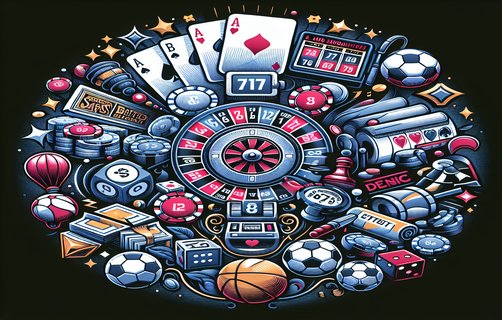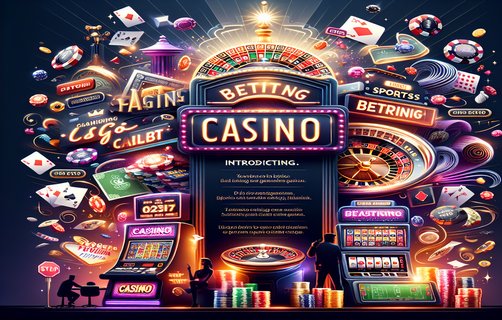Strategies in Board Games: Navigating Objectives and Luck
बोर्ड गेम्स में रणनीतियाँ: उद्देश्य और किस्मत का संतुलन
In the world of board games, players face a multitude of challenges that strike a balance between strategic objective setting and the unpredictable nature of luck. This juxtaposition forms the crux of enjoyment and frustration in tablepot gameplay. Players must evaluate their immediate goals, consider long-term winning conditions, and strategically navigate available resources. The process begins with objective-triggering rules that formulate the game’s core mechanics, leading players to set their sights on achievable milestones.
Once objectives are defined, the next logical step is balancing competing interests. Each player must decide how aggressively to pursue their goals while thwarting opponents from achieving theirs. This balancing act is where luck-based strategies come into play. While planning a deliberate strategy is beneficial, the inherent unpredictability of dice rolls or card draws can quickly shift the tides of any game.
Moreover, event markers, which signal particular game phases or significant occurrences, further influence players’ strategies. These markers act as catalysts for pattern building, encouraging players to adapt their strategies and take advantage of changing game dynamics. Recognizing these patterns allows players to preemptively respond to opponents, creating a reflexive gameplay experience that enhances both competitiveness and enjoyment.

In summary, the interplay of objective setting, luck-based methodologies, and adaptive strategies like pattern recognition and event marker utilization form the backbone of engaging board game experiences. Successful players master not only the mechanics of the game but also the nuances of human behavior and chance events. The ability to fluctuate between tactical plans and reactive strategies is often the deciding factor in who emerges victorious in the board game arena.
बोर्ड गेम्स की दुनिया में, खिलाड़ियों को कई चुनौतियों का सामना करना पड़ता है जो रणनीतिक उद्देश्य निर्धारण और किस्मत की अनिश्चितता के बीच संतुलन बनाते हैं। यह विरोधाभास टेबलपॉट गेमप्ले में आनंद और निराशा का केंद्र बनाता है। खिलाड़ियों को अपने तात्कालिक लक्ष्यों का आंकलन करना होता है, दीर्घकालिक जीत की स्थितियों पर विचार करना होता है, और उपलब्ध संसाधनों का रणनीतिक रूप से संचालन करना होता है।

जब उद्देश्य निर्धारित किए जाते हैं, तो अगला तार्किक कदम प्रतिस्पर्धात्मक हितों का संतुलन बनाना होता है। प्रत्येक खिलाड़ी को यह तय करना होता है कि वे अपने लक्ष्यों की दिशा में कितनी आक्रामकता से आगे बढ़ते हैं जबकि दूसरों को अपने लक्ष्यों को प्राप्त करने से रोकते हैं। यह संतुलन करना किस्मत पर आधारित रणनीतियों के उपयोग में आता है। एक जानबूझकर योजना बनाना लाभदायक होता है, लेकिन डाइस रोल या कार्ड ड्रॉ की अंतर्निहित अनिश्चितता किसी भी खेल की धारा को तेजी से बदल सकती है।
अधिकांशतः, ईवेंट मार्कर्स, जो विशेष खेल चरणों या महत्वपूर्ण घटनाओं का संकेत देते हैं, खिलाड़ियों की रणनीतियों को और प्रभावित करते हैं। ये मार्कर्स पैटर्न निर्माण के लिए उत्प्रेरक के रूप में कार्य करते हैं, खिलाड़ियों को अपनी रणनीतियों को अनुकूलित करने और बदलते खेल के गतिशीलता का लाभ उठाने के लिए प्रोत्साहित करते हैं। इन पैटर्नों को पहचानना खिलाड़ियों को प्रतिकूलताओं के प्रति पूर्व-प्रतिक्रिया करने की अनुमति देता है, जो कि एक प्रतिस्पर्धात्मक और आनंददायक गेमप्ले अनुभव को बढ़ाता है।
संक्षेप में, उद्देश्य निर्धारण, किस्मत आधारित विधियों, और पैटर्न पहचान और ईवेंट मार्कर उपयोग जैसी अनुकूल रणनीतियों की अंतर्क्रिया आकर्षक बोर्ड गेम अनुभवों की रीढ़ बनाती है। सफल खिलाड़ी केवल खेल की तंत्र को ही नहीं समझते बल्कि मानव व्यवहार और संयोग घटनाओं की बारीकियों को भी समझते हैं। योजना और प्रतिक्रिया रणनीतियों के बीच परिवर्तनशीलता अक्सर यह तय करने वाला कारक होती है कि बोर्ड गेम क्षेत्र में कौन विजयी होता है।

comments
GameMaster88
This article really highlights the delicate balance between strategy and luck in board gaming.
LuckyPlayer23
I love how you discussed the role of event markers; they can change the game entirely!
StrategistX22
Great points on objective setting; it’s crucial to adapt as the game progresses.
BoardGameNerd
I never considered how pattern building affects strategies; this was eye-opening.
DiceRoller99
Luck can be a game-changer. I've lost games I thought I had won!